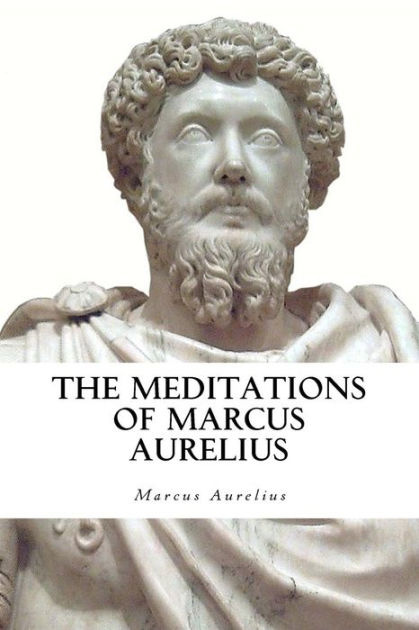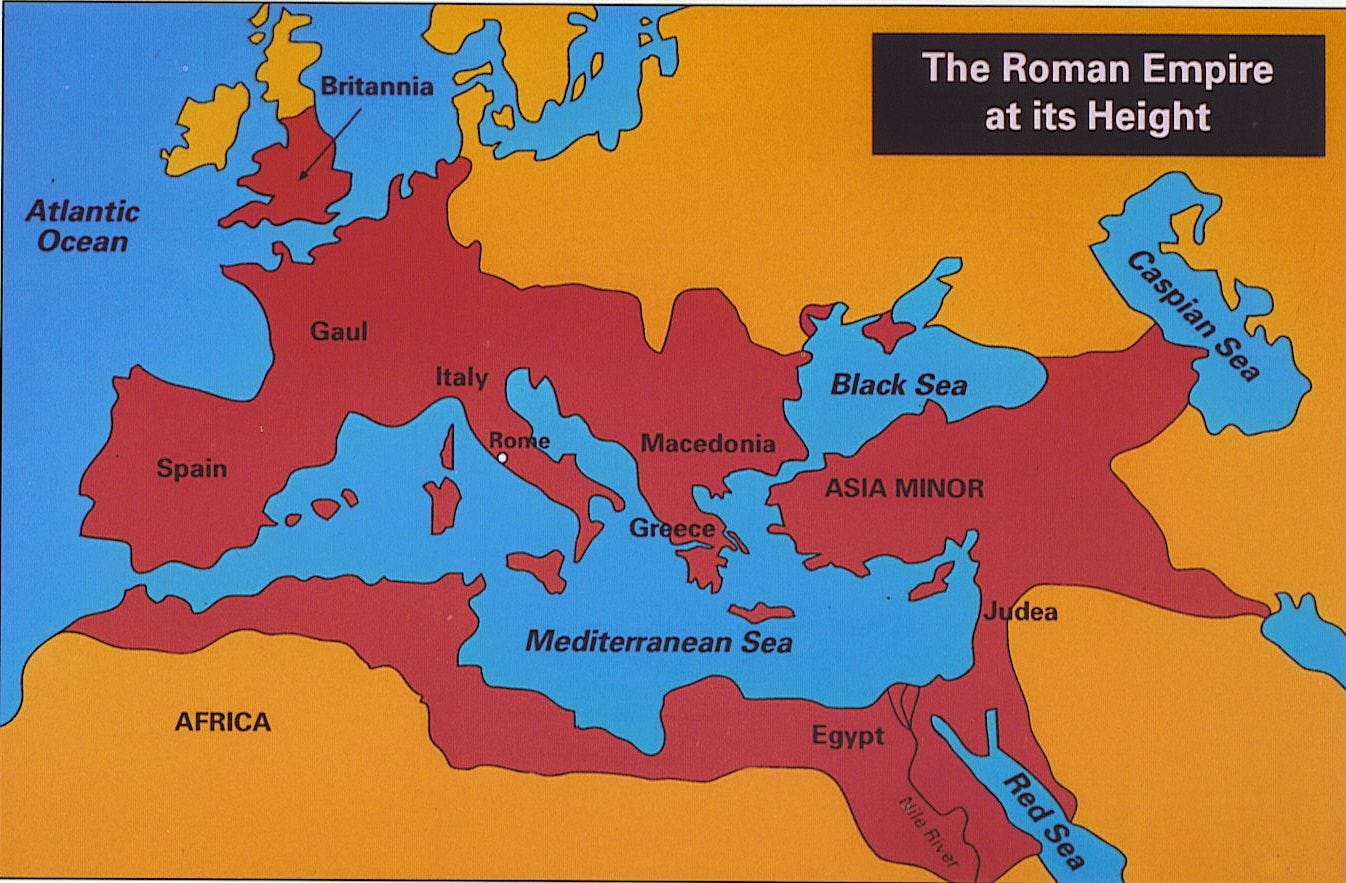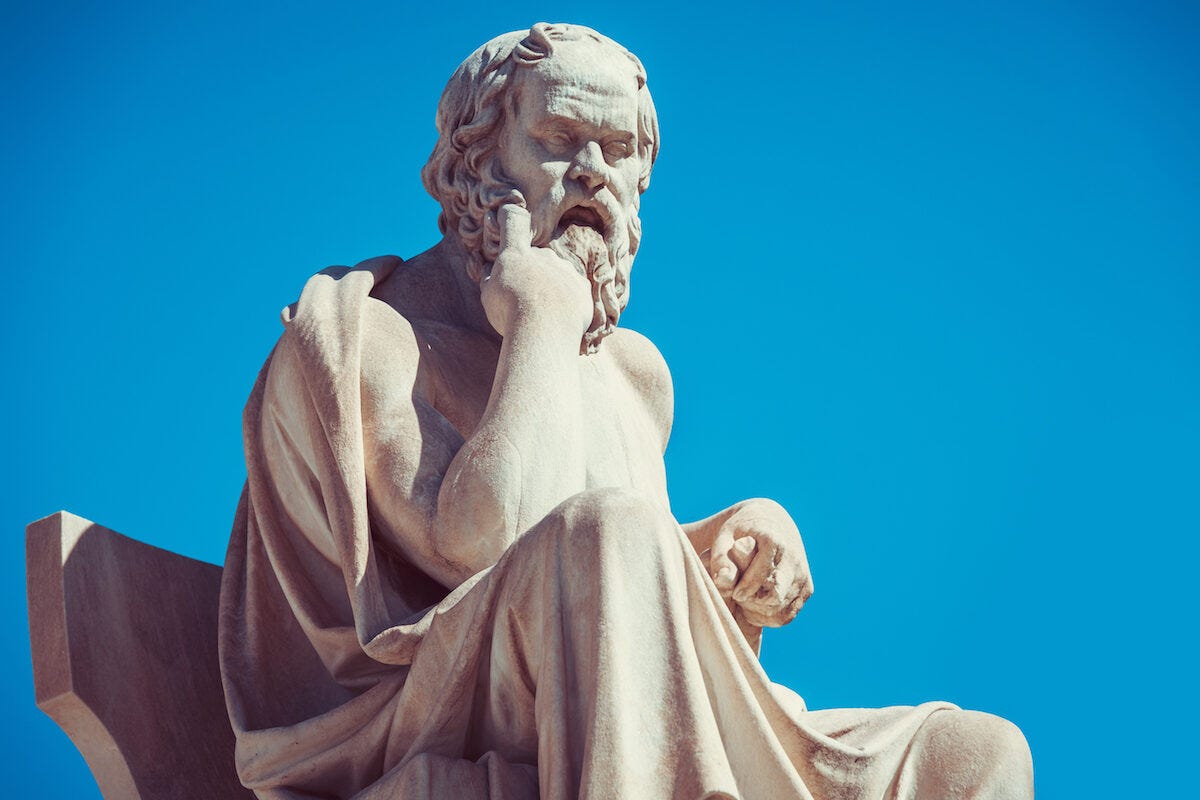Remembrances 1
People need to be reminded of the timeless truths they already know more than they need new and novel teachings
The Roman emperor Marcus Aurelius wrote down his Meditation remembrances for no one else save himself. They were a literary aid to assist him in remembering what he had already learned and accepted as true, right and correct as he wrestled with difficult decisions of great import.
If you take the time and the effort to fully compose a thought and write it down after careful reflection, it will more easily be remembered, even when you haven’t got access at the moment to the written recollection.
It has been noted in several scholarly reviews of his Meditations how Aurelius often repeated the same particular thought several times, emphasizing and expanding on it, focusing on it and stating it several different ways using interchanging words.
He did not do that because he just liked saying the same thing in different ways; he had a very good reason for the practice.
There is a vast difference between struggling to grasp a thought, or once having initially formed it, giving it only a brief review, and having fully and thoroughly examined it to the utmost.
Rewording a thought and saying it with different words several times helps the reasoner draw the thought in from the ether and fully flesh it out so that the mind can more fully ‘see’ and examine it for coherence, logical consistency, and truth.
Having been thoroughly examined and tested, the good, logical, true and useful thoughts can be written down, collected and treasured. The thoughts found to be bad, illogical, false and of no real use after their examination can be rejected and discarded.
Why must we work hard at remembering and recollecting what we already know?
The need for remembrances is paramount due to forces both innate to our human nature and outside ourselves in the world-at-large that are constantly pressuring us to forget the very important things we already know. These forces seek to drive us from out of sight of the landmarks and the already paved roads down into the dark wild country where we often lose our way.
Life forces decisions on us, and rashly rushing in and making very fast or snap decisions on things of great importance without prior reflection can lead not only to disaster for the decider, but also for others affected by the bad decisions.
There are choices and decisions that affect only the self who is making them, and there are other choices and decisions that will affect far more than just the decider.
This is something Marcus Aurelius seems to have realized early in his life. He was, after all, the Emperor of the vast Roman Empire, not exactly a small or inconsequential office affecting only a few immediate persons in his geographical orbit.
Marcus was called upon frequently as the emperor to make decisions that would directly affect the lives of several million people. His writings in his Meditations make it clear he took the great responsibility he was given to make the kind of decisions that had an impact on most of the known world with the utmost seriousness.
He very likely had firsthand experience of the folly of rushing into a decision without reflection or care as a young man. In matters of state, a bad or rash decision in diplomacy often leads to wars or the unnecessary prolonging of conflicts.
Either through several bad decisions of his own, or his observation of others in charge before he took the throne seem to have impressed upon Marcus the severe consequences that will arise when one makes a hasty decision without the quite necessary examination of all available options and the possible consequences of adopting any of them.
One of the key things Marcus stresses in his Meditations is developing the kind of stoic character with the fortitude that will be successful in resisting any compulsion to rush into an important decision.
After reading his Meditations for myself recently, Marcus appears to me to have fully grasped that he made his best decisions that obtained the best outcomes [that he could see from his limited perspective] when he took his time to recollect what he already knew, staying on that solid ground as he explored his various options.
As Marcus sought time to reflect and recollect as he pondered his decision, he noticed the forces at work both within himself and in others that sought to hurry him up, to make him forget what he already knew, strongly urging to quickly adopt one option and not another.
It is for this reason that I believe Marcus wrote his Meditations. To remind himself of what he already knew as he resisted pressures both innate and outward that constantly sought to influence his decisions and actions as the emperor of the Roman empire.
The higher in power and responsibility that a decision-maker has over other people, the more that intense pressures shall be brought to bear upon that person, as many others furiously and sometimes subtly attempt to influence the decisions the leader is being required to make.
Outward and Inward Compulsions To Making Hasty And Rash Bad Decisions Are Countered By Being Grounded In The Truth About Both Ourselves and the World Around Us
Not only do other people constantly seem to strive to make us forget what we already know as they urge us to make our decisions quickly with the particular outcome that they believe to be in their favor, we ourselves, by our own fickle human nature, do easily obscure and fog up our own minds.
When Socrates said “Know thyself” he was aware that the one self we at all times have the most intimate of acquaintances with is a never finished ‘work in progress’.
Knowing thyself is a lifelong endeavor that never reaches a conclusion.
Knowing the self never reaches an end because the self is always changing. The self you were seeking to know at 20 is very different from the self you are still seeking to know at 50.
And making it difficult to truly and accurately ‘know thyself’ is man’s fallen and imperfect nature.
Self-Deception Is One of the Biggest Causes of Making Bad Choices
Telling ourselves the truth about ourselves is a difficult lifelong task because it is remarkably easy to retreat into denial and self-deception.
The mind’s ability to engage in self-deception and self-rationalization is almost limitless.
Getting lied to or deceived by other people is bad but that is more easily fixed than self-deception. After all, once you’ve learned someone lied to you and deceived you about something of great consequence, you can keep an eye on them. You can take steps to limit their ability to deceive you in the future. You have the option of no longer trusting them or placing any real value on what they tell you.
But if you’re in the habit of lying to yourself, well that’s a problem of a completely different nature. The issue here is not another person doing you wrong, but instead a wrong you are doing to yourself.
You will not become a better decision maker until you can refrain from the temptation to tell yourself comfortable and flattering lies that prevent you from clearly and rationally assessing your possible choices.
What motivates you to lie to yourself about one of your favorite topics, yourself? Why would you do that?
When I’ve caught myself doing this, I’ve discovered the most consistent reason I’m attempting to fool myself is because I want to make either no choice at all or the easiest choice rather than the harder one that was required.
We don’t want to see ourselves accurately because it would require much more work from us, and so it is far easier to just put it off and hide the truth from ourselves.
To truly ‘know thyself’, one must first be committed to engaging in frequent brutally honest self-assessments. This is a much harder habit to get into than many others.
Honest self-assessment is not an easy thing to accomplish, especially living in a world in which you are at all times surrounded by people well practiced in the fine art of self-deception.
The one person in this world we will always struggle to see with the most accuracy is the one person we would benefit the most from seeing accurately: ourselves.
The noted poet Robert Burns understood this very human dilemma so well he wrote an immortal poem about it:
“O, wad some Power the giftie gie us
To see oursels as others see us!
It wad frae monie a blunder free us,
An' foolish notion!”
English translation:
“Oh, would some power the gift give us,
To let us see ourselves as others see us!
It would from many a blunder free us,
And from foolish notion!”
Had we a strong natural inclination to both accurately see and fervently believe the truth about ourselves, the above poem would not strike us to the quick at all.
It is a peculiar human trait that we are oftentimes far more interested in discovering ‘the truth’ about other people than we are invested in discovering it about ourselves.
In fact, rather than immediately accept uncomfortable truths about ourselves, we find our nature seems to be more naturally inclined to seek refuge in denial, obfuscation and avoidance.
We live in a world in which it’s often far easier to find someone to tell you comfortable lies than uncomfortable truths.
Many people react with hostility to someone who told them an uncomfortable truth about themselves that they were neither prepared for nor willing to hear.
Of all the truths in the world, it is the truths about ourselves that are often the hardest to face. But it must be done, if we are to guide ourselves and others with the truth and with the best possible decisions.
Truth often has to upset us before it can begin changing us.
And the writing of remembrances will aid us in our lifelong journey to both know ourselves and to tell ourselves the truth as we wrestle with life’s decisions.
My Sponsors:
Rise of the New Media is a READER-SUPPORTED PUBLICATION!
That means very single paying subscriber to this Substack newsletter is one of my sponsors. And I am so very deeply grateful to each and every one of them, because it is their regular monthly support that allows me to do this column writing and researching for a living.
Unlike Fake News propagandists, as an honest independent journalist, I don’t have a sugar daddy billionaire handing me money behind the scenes. I am supported by ordinary citizens and patriots. And it is AWESOME.
If you see value in my columns and livestreams and would like to support my independent journalism, you can become a paying subscriber for as little as $5/month. And I thank you for your support.
Rise of the New Media Newsletter is a reader-supported publication. To receive new posts and support my work, consider becoming a paid subscriber.
Rise of the New Media Newsletter is a reader-supported publication. To receive new posts and support my work, consider becoming a paid subscriber.
Subscribed
Patriot Switch:
I am helping American patriots MAKE THE SWITCH from buying needed groceries from the 11 Big Corporations out there that are pushing a ‘woke’ agenda on the country at the same time they are genetically modifying our food & selling us items that are toxic and are poisoning us. Learn about MAKING THE SWITCH yourself right here: patriotswitch.com/briancates
patriotswitch.com/BRIANCATES
The Rise of the New Media Substack is also sponsored by One Source Solutions, a great payment processor site run by and for patriot businesses. Tired of cancel culture and worried about getting deplatformed by PayPal or some other Silicon Valley website? Here’s your answer. Be sure to tell them Brian Cates sent you, because I get residuals for referrals. :)
And we have a new sponsor in Dr. Kirk Elliot and his team at K+E! If you need financial services or financial advice, they are a great place to find answers to your questions. You can find out what services are offered at K+E right here at this link.
To support my independent journalism, you can also make a donation of any size to my Venmo, CashApp accounts.
You can become a regular monthly supporter at Subscribestar:
https://www.subscribestar.com/brian-cates-political-pundit
You can also browse my merchandise store and toss me a few bucks while getting yourself some cool gear:
And I thank you for your support. :)












This was a great idea for a column, Brian, and very well done. You covered a lot of ground and I liked that you used differing types of reference material and came at the subject in different ways. This in particular is important, imo:
"Of all the truths in the world, it is the truths about ourselves that are often the hardest to face. But it must be done, if we are to guide ourselves and others with the truth and with the best possible decisions."
Excellent point! All organisms are by necessity programmed to AVOID PAIN and to SEEK PLEASURE; that is the POINT of pain and pleasure, after all. When one is emotionally invested in an opinion or belief, then changing that opinion or belief is painful. When enough emotional damage / repression is present, neurosis -- with all its varied harmful behaviors and effects -- is the result. Thus the importance of compassionate care of children; a large drop in emotional damage to children would bring an equally large drop in harmful behaviors, individually and society-wide.
The scientific mindset -- or call it what you will -- of TRUTH-SEEKING as a high-ranking beneficial goal in life SOFTENS but does not eliminate the emotional defenses that hide painful realities from us. Some truths will always be harder to accept than others.
I was re-reading Carlo Rovelli's "Seven Brief Lessons on Physics" before sitting down to my computer just now, and here's what I happened to finish my session with:
-- begin quote --
When we talk about the big bang or the fabric of space, what we are doing is not a continuation of the free and fantastic stories that humans have told nightly around campfires for hundreds of thousands of years. It is the continuation of something else: of the gaze of those same men in the first light of day looking at tracks left by antelope in the dust of the savannah - scrutinizing and deducting from the details of reality in order to pursue something that we can't see directly but can follow the traces of. In the awareness that we can always be wrong, and therefore ready at any moment to change direction if a new track appears; but knowing also that if we are good enough we will get it right and will find what we are seeking. This is the nature of science.
. . . The separation is a subtle one: the antelope hunted at dawn is not far removed from the antelope deity in that night's storytelling.
The border is porus. Myths nourish science, and science nourishes myth. But the value of knowledge remains. If we find the antelope, we can eat."
-- end quote --
I look forward to more of your writing on this topic.
Best regards --
~ Bravo Brian. Polonius (via Shakespeare) said, "To thine own self be true, and thou cannot be false to any man." Awareness, Knowledge, & Wisdom are primarily gained through experience, the hard way. History & literature have so many lessons we fail to learn since each generation insists on proclaiming its primacy and refusing to take to heart the advice of the past. Studying history & literature in college & life-long learning is a mirror to myself & informs my conservative nature. ~